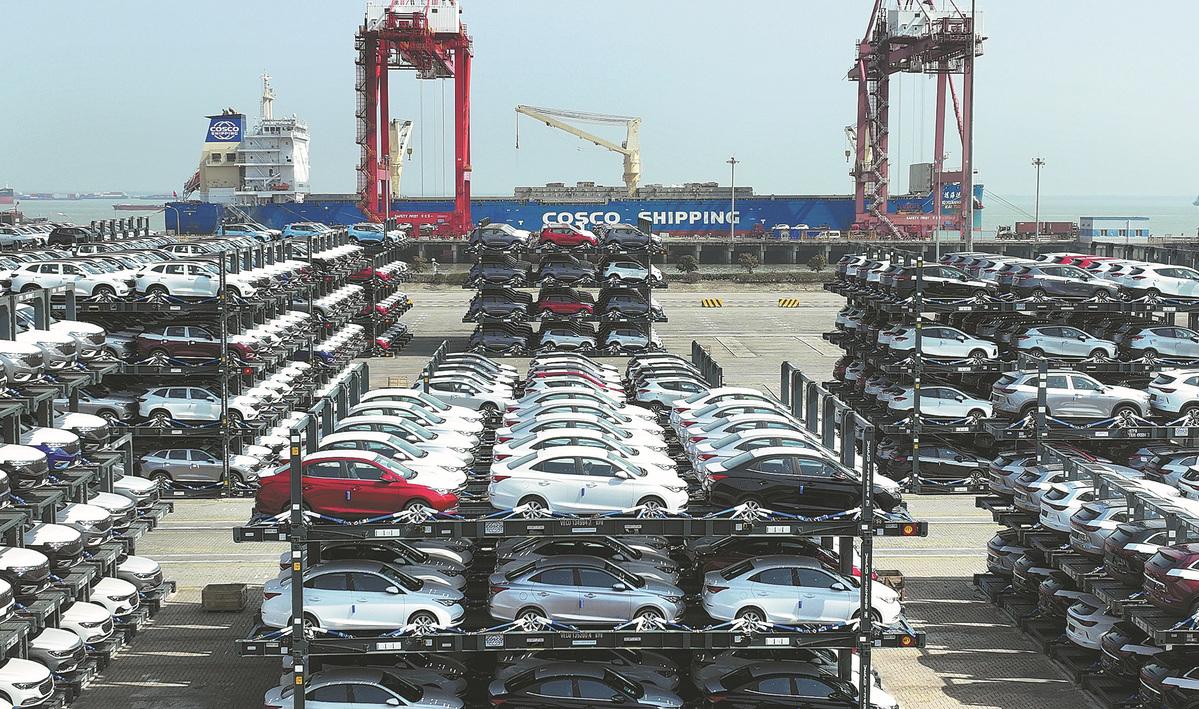
Vehicles from Chinese brands wait to be exported from a port in Suzhou, Jiangsu province. [Photo/China Daily]
This is an editorial from China Daily.
The anti-subsidy investigation into Chinese electric vehicles that the European Union announced last week is supposedly to protect Europe's own industry through fair competition. It is speculated that the probe, likely to last nine months, could ultimately lead to tariffs of about 10-15 percent being levied on imported Chinese EVs if it determines that China has kept prices of its cars artificially low by providing huge subsidies to the detriment of European producers.
Yet the protectionist move has met with lukewarm response from its target beneficiaries in Europe. Rather, it has sparked worries about the negative impacts it will have on healthy competition within the automotive industry and global supply chains.
"An open market is what drives growth and what drives wealth creation," Mercedes-Benz CEO Ola Kallenius said in an interview with Bloomberg on Tuesday. "Let's keep markets open and let market participants fight it out." The remarks are revealing, given that the trade defense measures some EU politicians are seeking to adopt against China will only serve to create market barriers and disrupt global automotive supply chains, while seriously harming China-EU trade and economic relations. As Ola noted, supply chains "can be fragile". "It would be a complete illusion to think we can divide the automotive world into individual regions," he said.
China has always advocated an open market and fair competition, and welcomed EU automotive companies to expand investment in the country, which has become the largest overseas market for many European auto companies. For instance, alongside Volkswagen and BMW, China is Mercedes-Benz's single most important market, accounting for about one-third of its sales. The opening up of markets under the World Trade Organization framework has produced win-win results for all market participants.
It is not the first time that China and the EU have become embroiled in a trade dispute. Ten years ago the EU imposed hefty punitive tariffs on what it believed were underpriced solar panels and their components, only to see the tensions dissolved soon after the two sides reached an agreement on prices and the volume of Chinese exports of solar panels to the EU.
It is hoped that this time, taking into account the bigger picture of maintaining the China-EU comprehensive strategic partnership and the stability of global industry and supply chains, the two sides will again work to settle their dispute through dialogue and consultation. It would serve both sides' interests if they could build a fair, nondiscriminatory and predictable market environment for the development of the EV industry, and jointly address climate change.

 中文
中文



